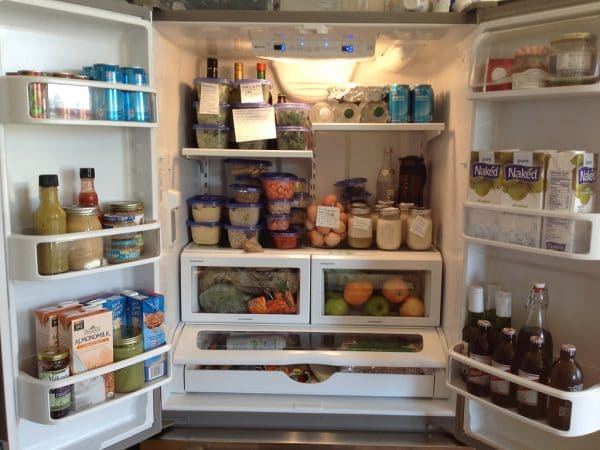One of the common problems that people with hectic schedules face is this: finding rotten food in the fridge. They only have a few hours during the weekend to go to the grocery and purchase meat products, fruits, vegetables and other food supplies for the week, but then forget to eat or cook them because most of their time is spent working in the office and eating out to save time. They only remember that they have food supply when they’re home and they want to cook meals or prepare salads during the weekend, only to find out that the fresh produce has already turned bad. It’s a waste of food and money. The same thing happens the week after and before you know it, it’s already becoming a vicious cycle.
You can keep this from happening by spending a couple of minutes to put food in the proper storage before placing them in the fridge. People usually dump the food in the fridge so looking for food to eat usually becomes a treasure hunt. Keep your fridge clean by putting similar foods in the same container, storing the food properly, knowing which sections to put the food in, and organizing your fridge. These simple steps will save you time, money, and fridge space.
Here are some techniques to help you store and organize food in your fridge:
1. Organize your food according to the accurate temperature:
- Freezer: The freezer has the coldest temperature and is obviously meant for storing frozen foods. However, there are other foods that you can store in the freezer aside from ice, frozen fruits, frozen meat, and frozen vegetables. These are: sauce, eggs, bread, and stock. To seal in the freshness, pack these foods tightly or put them in plastic containers to store them properly.
- Crisper: Although this part of the fridge is designed for storing fruits and vegetables, make sure that you still place them in separate containers. You can use the lower shelves to store your fruits and vegetables if your fridge doesn’t have a crisper.
- Upper Shelves: It may not be the coolest but of all parts of the refrigerator, the upper shelves have the most consistent temperature that’s why it’s perfect for storing leftovers. If you also have herbs, alcoholic beverages, fruit drinks, and ready-to-eat foods, you should store it in the upper shelves of your fridge.
- Lower Shelves: The lower shelves are the coldest sections of the refrigerator. If you have food that still needs to be cooked, it’s best to store them in the lower shelves. Normally, people store milk and eggs in the fridge doors but the truth is, they’re best stored in the lower shelves. You can also store uncooked meat in this section, but keep it in its original packaging.
- Doors: The fridge doors have a warm temperature. The water, juices, and condiments can be stored there.
2. How to store foods properly:
- Put leftover fruit and vegetable salads in Mason Jars so they stay fresh until the next day. Don’t forget to put them in the fridge after.
- You can put vegetables such as squash, onions, potatoes, and tomatoes in a basket since then don’t need to be stored in the fridge.
- Don’t forget to put labels on small plastic food containers. This way, you won’t have a hard time looking for them the next time you try to find something to cook or eat. You can put similar foods in one small container to save space.
- Foods that are about to go bad and foods that are ready-to-eat such as bread or frozen pizza should be stored in a place that you can be spotted easily so you won’t forget about them.
- Skip the treasure hunt! Invest in plastic baskets or containers and use them to store your food. These plastic baskets are so convenient- they save space, lessen the mess, plus they slide in and out easily. You can also see what’s inside without having to open and close the lid.
- Use fridge mats on the upper and lower shelves to avoid mess and spillage. If you or your kids spill drinks or leftover food next time, just replace the mat with a clean one.
Knowing how to store food properly before putting them in the fridge helps seal in the freshness for days. It’s also important to note, however, if these foods should be stored in the fridge or not. Case in point: foods such as nut butters, whole grain flours, nut flours, natural oils, and nuts can be kept inside or outside the refrigerator.
These simple tricks will help make your food last longer. By knowing how to store food and organize them, you keep them fresh and healthy, save space, minimize the mess, and save more money.
